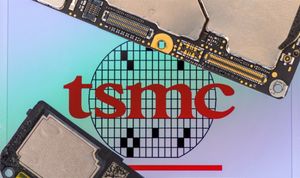In today’s digital world, online security is not a luxury—it’s a necessity. Whether you own a small business website, an e-commerce store, or a corporate portal, securing sensitive data and building customer trust are critical. That’s where Comodo Certificates (now known as Sectigo Certificates) come in.
Comodo has long been one of the most recognized and affordable Certificate Authorities (CAs) in the industry, offering SSL/TLS certificates that protect data, enable secure transactions, and improve search engine visibility. By installing a Comodo Certificate, you ensure that your website visitors see the trusted padlock symbol and “https://” in the address bar, a clear signal of security and credibility.
This article provides a complete guide to Comodo Certificates, their types, benefits, and how to choose the right one for your website.
What is a Comodo Certificate?
A Comodo Certificate is a digital SSL/TLS certificate issued by Comodo (rebranded as Sectigo in 2018). It encrypts communication between a web server and a user’s browser, ensuring that sensitive data such as passwords, credit card details, and personal information remains private.
Once installed, a Comodo Certificate:
- Activates the secure HTTPS protocol.
- Displays the padlock icon in the browser.
- Helps prevent phishing, man-in-the-middle attacks, and data breaches.
Why Choose a Comodo Certificate?
There are many reasons why millions of websites worldwide use Comodo Certificates:
- Affordability – Comodo is known for offering some of the most affordable SSL/TLS certificates in the market.
- Strong Encryption – 256-bit encryption with 2048-bit RSA key support.
- Fast Issuance – Domain Validated SSLs are issued within minutes.
- Wide Range of Options – DV, OV, EV, Wildcard, and Multi-Domain certificates are available.
- Warranty Coverage – Comodo certificates include warranties ranging from $10,000 to $1.75 million depending on the type.
- Browser Compatibility – Recognized by all major browsers and mobile devices.
Types of Comodo Certificates
- Comodo Domain Validation (DV) SSL
- Cheapest and fastest option.
- Validates only domain ownership.
- Best for blogs, personal websites, and small businesses.
- Comodo Organization Validation (OV) SSL
- Requires business verification.
- Displays organization details in the certificate.
- Suitable for small-to-medium businesses needing extra trust.
- Comodo Extended Validation (EV) SSL
- Highest level of validation with rigorous checks.
- Displays your company name in the browser’s address bar.
- Ideal for e-commerce websites and financial institutions.
- Comodo Wildcard SSL
- Secures a main domain and unlimited subdomains.
- Cost-effective solution for businesses with multiple subdomains.
- Comodo Multi-Domain (SAN/UCC) SSL
- Protects multiple domains with a single certificate.
- Perfect for companies managing several websites.
- Comodo Code Signing Certificate
- Ensures that software or applications are authentic and haven’t been tampered with.
- Trusted by developers and software companies.
Benefits of Using a Comodo Certificate
- Data Security – Encrypts sensitive transactions and communications.
- Increased Conversions – Visitors are more likely to trust a secure site.
- Improved SEO Rankings – Google favors websites with HTTPS.
- Brand Credibility – EV and OV SSL certificates display company details to users.
- Warranty Protection – Financial compensation in case of a certificate-related breach.
- Scalability – Wildcard and Multi-Domain SSLs make it easy to secure large infrastructures.
How to Buy a Comodo Certificate
- Choose the Right Type – Identify whether you need DV, OV, EV, Wildcard, or Multi-Domain SSL.
- Select a Provider or Reseller – Purchase from authorized sellers like Comodo CA, Sectigo, SSL2BUY, or Namecheap.
- Generate a CSR (Certificate Signing Request) – Typically done from your hosting provider’s control panel.
- Complete Validation – Depending on the type, validation may take minutes (DV) or days (EV).
- Install the Certificate – Upload it to your web hosting server.
- Verify Installation – Check your website to ensure HTTPS is active and the padlock icon appears.
Where to Buy Comodo Certificates at the Best Price
While you can buy directly from Comodo/Sectigo, resellers often provide cheaper options. Some popular platforms include:
- SSL2BUY – Offers Comodo Certificates at discounted rates.
- CheapSSLShop – Known for budget-friendly SSL deals.
- Namecheap – Easy integration with web hosting.
- GoDaddy & DigiCert resellers – Trusted providers (though usually more expensive).
Comodo Certificate vs. Free SSL (Let’s Encrypt)
Many people ask whether they should use a free SSL like Let’s Encrypt instead of buying a Comodo Certificate. Here’s a comparison:
- Encryption Strength – Both offer the same 256-bit encryption.
- Support – Comodo offers dedicated support; Let’s Encrypt does not.
- Warranty – Comodo certificates include warranties, while Let’s Encrypt does not.
- Validation Levels – Comodo offers DV, OV, and EV; Let’s Encrypt only provides DV.
 If you’re running a professional or e-commerce website, a Comodo Certificate is the better choice because of support, validation options, and warranty protection.
If you’re running a professional or e-commerce website, a Comodo Certificate is the better choice because of support, validation options, and warranty protection.
Common Uses of Comodo Certificates
- E-commerce Websites – To protect customer payment information.
- Corporate Websites – To build brand trust and credibility.
- Blogs & Portfolios – To avoid browser “Not Secure” warnings.
- Software Companies – To sign applications with Comodo Code Signing.
- Email Security – With Comodo S/MIME certificates for encrypted communication.
For more helpful blog posts like this one, visit the rest of our site, DiscoverBlog.
Conclusion
A Comodo Certificate is one of the most reliable and cost-effective ways to secure your website, improve SEO, and build customer trust. Whether you’re looking for a quick and affordable DV SSL or a highly trusted EV SSL, Comodo (Sectigo) has solutions for every type of business.
By investing in the right Comodo Certificate, you not only protect your website from cyber threats but also enhance credibility and increase conversions.







